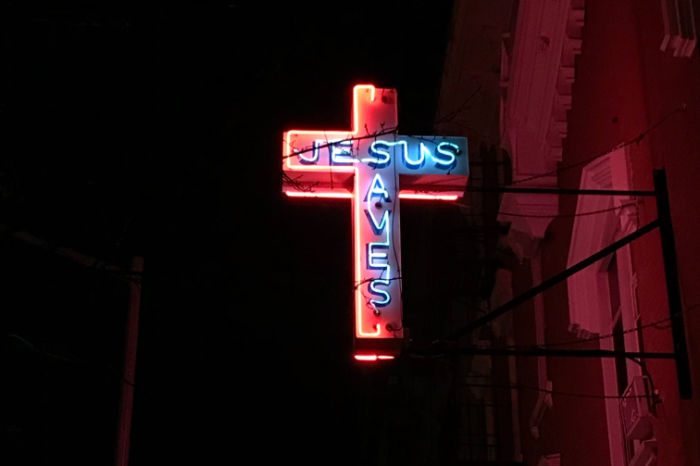After domestic terrorists stormed the U.S. Capitol, people of faith try to understand what is going on with their neighbors.

The Good Samaritan whitewash
I’ve seen a lot of people of faith try to address the moment in ways they hope will calm the waters of discontent. And there’s something about it that doesn’t entirely fit.
The peak of my frustration came from a cartoon. It showed four people on the subway: three in suits and among them is someone who could’ve been a Q cult member. They are judging him. And yet there he is, “giving his heart” to Jesus in a thought bubble.
I mean, yeah, I guess that’s something, right? But really, this seems like a really bad take.
The parable of the Good Samaritan seems instructive for the moment.
A man is beaten by thugs and left for dead by the side of the road. A religious man crosses to the other side to avoid him. Another does the same. Then a third man, a Samaritan (an outsider/other) tends to his wounds, carries him to an inn, pays for his lodging, and covers his expenses.
This story is raised as instructive about who is the neighbor.
We get the easy stuff straight away. The two religious people are being jerks. And kindness can come from anyone.
People with some background recognize that the two religious people were actually following Jewish custom and the Samaritan was technically the only one who could save this guy’s life.
And then people who totally know the parable love to put their enemies in the place of the Samaritan. We can’t get enough of that. It makes us squirm like nothing else. Back in the ‘00s it was this: imagine it is Osama bin Laden who heals the man! [mic drop]
But the parable isn’t about identity.
Or even how we short-circuit identity.
It’s about being a neighbor. In the parable, who was being a neighbor: the Samaritan.
Right now, I don’t actually need help seeing people who broke into the Capitol as neighbors. That’s just a question of identity. In fact these people seem to have plenty of neighbors who will give to their GoFundMe campaigns.
Wednesday they weren’t being anyone’s neighbors. Because they weren’t the Samaritan in the story. They’re the ones who beat the man.
We’re too prone to draw the wrong conclusion from the parable.
The parable isn’t about our mercy to the bandits.
It’s about an outsider who shows unexpected mercy to someone in need. Someone oppressed. Beaten. Left for dead.
We’re called to be neighborly to the victims of violence, greed, and selfishness. That’s who needs mercy.
The parable doesn’t teach us what to think of the bandits. But it does teach us where our focus lies: mercy for the powerless.
And certainly not bullies demonstrating their power.
